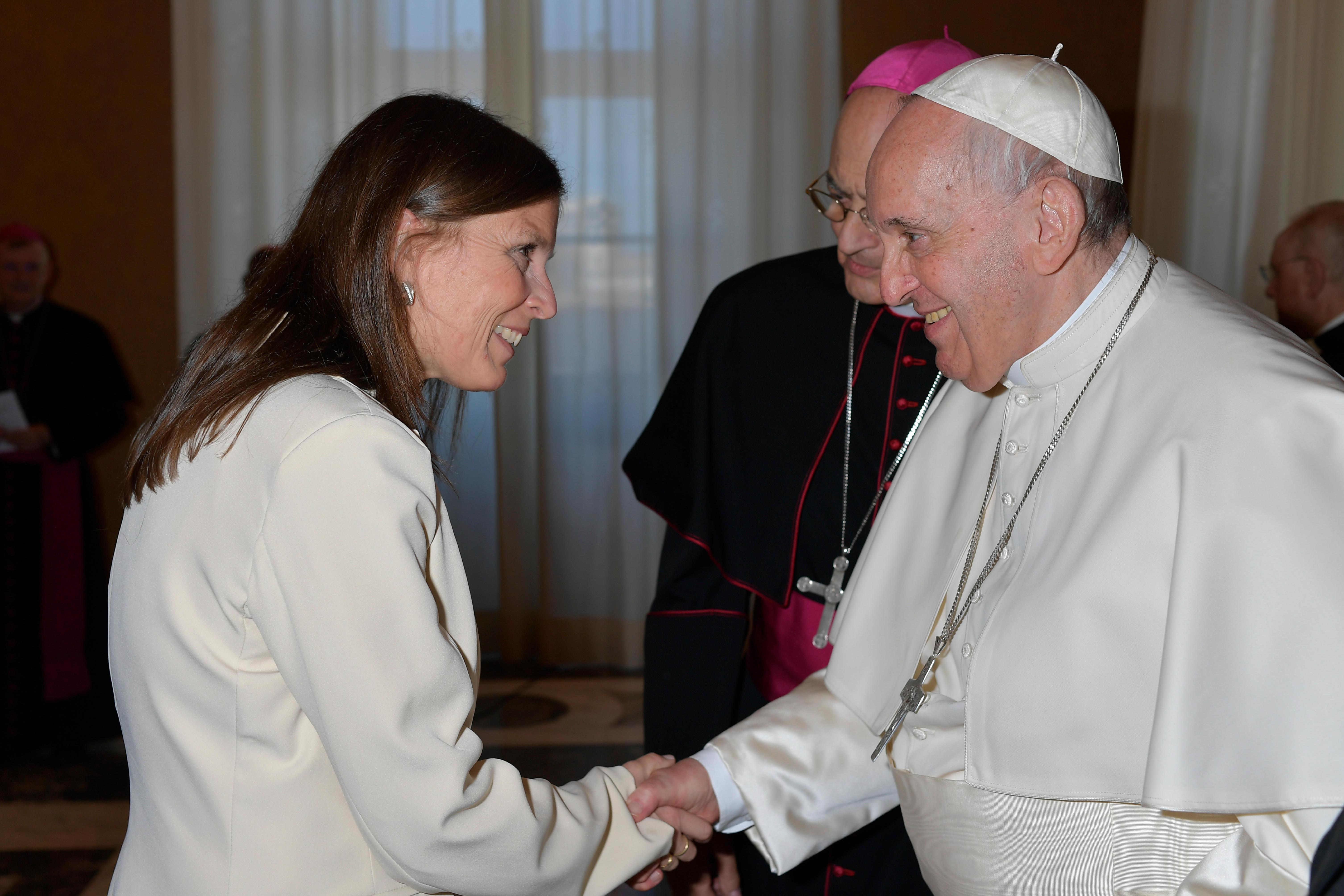
In the past two years alone, families have undergone what can feel like insurmountable stress—the stress associated with the pandemic, on top of chronic stressors like financial problems, limited access to health care, and balancing work-family life responsibilities, all of which can have significant physical and psychological effects on individuals and their relationships. However, research shows that healthy family relationships and coping relationally and not just individually can help protect individuals from some of those negative effects.
In April, Dr. Mariana Falconier, associate professor of Family Science and director of the Couple and Family Therapy Master’s program was invited to present that research at the Pontifical Academy of Social Sciences at the Vatican. Falconier also directs the TOGETHER program, which offers free relationship and financial education to couples and access to services in the community. That program, designed to reduce individual and relationship stress, and financial stress in particular, was a significant part of her presentation at the Vatican.
She was part of a plenary session called Family As Relational Good: The Challenge of Love that examined the social and cultural transformations of the family to “clarify the deeper meaning of the family’s existence,” and to “evaluate the practical implications for a better family promotion.”
Over three days, Falconier presented alongside participants that included, among others, economists, political scientists, anthropologists, sociologists, philosophers, and the Prime Minister of Italy. Falconier described how “during times of crisis, families can come together to cope with stress in a way that’s protective of their relationships.”
“I think what the Academy was interested in was the fact that I spoke about how families were affected by high levels of chronic stress before the pandemic, how the pandemic exacerbated those levels of stress—particularly related to finances, work, and family life balance— and how that affects some groups even more, like those that are low income or are struggling with stress from discrimination or immigration,” she said.
Though Falconier herself isn’t religious, she said the Academy was welcoming to people from all different backgrounds.
“I found a lot of openness in that regard, that I could really talk about my research and clinical work with low-income and Latinx families and their stressful realities from a secular perspective,” she said.
The papers presented during these three-day plenary will be available to the public in August. The plenary included a presentation of the main findings and conclusions to Pope Francis, who provided feedback and greeted everyone individually.
Falconier said that it was wonderful to see family science being promoted and taken seriously at such a high level.
“My presentation and the discussion that followed showed the importance of taking chronic stress seriously. It has affected family life and how we relate to one another, and we should really pay attention to this and do something about it,” she said. “I think it helped me bring visibility to these issues and see them as part of public health. Public health is not just taking care of your physical or individual mental health, but also taking care of relationships. This opportunity gave me an international platform to bring attention to this issue and encourage policies, programs, and interventions that reduce the sources of stress, encourage relationship-focused coping, and prioritize family life and relationships. I was very pleased to see that people with high positions in public office, government and very prestigious academicians were open to listening to this and understanding its value.”